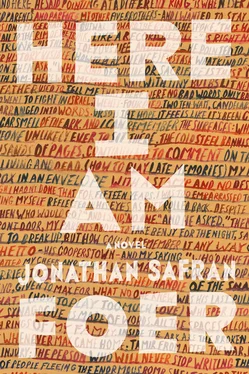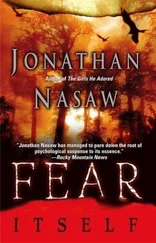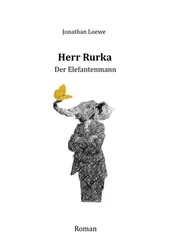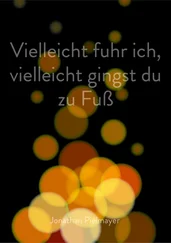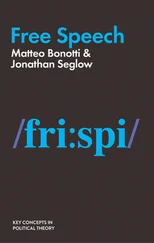She picked up my spoon and said, “We got divorced because that’s what we did. It’s not a tautology.”
While the waiters were bringing dinner to the final tables, the first tables were being brought dessert.
“And the boys?” I asked. “How did you explain it to them?”
“They never really asked me. Sometimes they’d trace the outline, but they’d never enter. With you?”
“Never once. Isn’t that odd?”
“No,” she said, a bride in her dress. “It’s not.”
I looked at my boys being silly children on the dance floor and said, “Why did we put them in the position of having to ask?”
“Our love for them got in the way of being good parents.”
I ran my finger around the rim of my glass, but no music came.
“I’d be a much better father if I could do it again.”
“You can,” she said.
“I’m not going to have any more kids.”
“I know.”
“And I don’t have a time machine.”
“I know.”
“And I don’t believe in reincarnation.”
“I know.”
“Think we could have made it?” I asked. “If we’d tried harder? Gone back into things?”
“Made what?”
“Life.”
“We made three lives,” she said.
“Could we have made one?”
“Is that the question?”
“Why not?”
“ Making it. Not failing. There are more ambitious things to do with life.”
“Are there?”
“I hope so.”
On the drive to the party, I’d listened to a podcast about asteroids, and how unprepared we are for the possibility of one heading toward us. The physicist being interviewed explained why none of the possible contingencies would work: nuking it would just turn a cosmic cannonball into cosmic buckshot (and the debris would likely re-form in a few hours due to gravity); robotic landers could deflect the asteroid with mounted thrusters, if such things existed, which they don’t and won’t; similarly implausible would be sending up an enormous spacecraft as a “gravity tractor,” using its own mass to pull the asteroid away from Earth. “So what would we do?” the host asked. “Probably nuke it,” the physicist said. “But you said it would only break it into lots of asteroids that would hit us.” “That’s right.” “So it wouldn’t work.” “Almost certainly not,” the physicist said, “but it would be our best hope.”
Our best hope.
The expression didn’t awaken anything in me at the time. It took Julia’s hope attaching itself to the other terminal of my mind to jump-start my sadness.
“Remember when I smashed the lightbulb? At our wedding?”
“Are you really asking me that?”
“Did you like that moment?”
“That’s a funny question,” she said. “But yes, I did.”
“Me, too.”
“I don’t even know what it’s supposed to symbolize.”
“I’m glad you asked.”
“I knew you would be.”
“So, some people think it’s to remind us of all the destruction that was necessary to bring us to the moment of our greatest happiness. Some people think it’s a kind of prayer: let us be happy until the shards of this lightbulb reassemble. Some people think it’s a symbol of fragility. But the interpretation I’ve never heard is the most straightforward one: this is what we’re like. We are broken individuals, committing to what will be a broken union in a broken world.”
“It’s less inspiring your way.”
It’s not , I thought. It’s more inspiring.
I said, “There is nothing more whole than a broken heart.”
“Silvers?”
“In fact, the Kotzker Rebbe.”
“Listen to you.”
“I’ve been studying with the rabbi who did my grandfather’s funeral.”
“Curiosity converted the cat.”
“Meowzel tov.”
How I loved her laugh.
I looked at Julia, and in that moment I knew we never could have made it. But I also knew that she had been my best hope.
“Isn’t it strange?” I said. “We had sixteen years together. They felt like everything when we were in them, but as time passes they will account for less and less of our lives. All of that everything was just a … what? A chapter?”
“That’s not how I think about it.”
She tucked her hair behind her ear, as I’d seen her do tens of thousands of times.
I asked, “Why are you crying?”
“Why am I crying? Why aren’t you crying? This is life . I’m crying because this is my life.”
Just as the sound of the scooper going into Argus’s dog food used to bring him running from wherever in the house he was, the boys seemed almost telepathically drawn to their mother’s tears.
“Why’s everyone crying?” Sam asked. “Did someone win a gold medal?”
“Are you sad?” Benjy asked me.
“You don’t have to worry about me,” I told him.
“It’s OK,” Julia said. “Let it be OK.”
There was nothing more painful than being the center of attention at my wife’s wedding, save for continuing to think of her as my wife.
“Overjoyed?” Max asked, handing Benjy the maraschino cherry from his Shirley Temple.
“No.”
“Flabbergasted? Cattywampussed? Diaphanous?”
I laughed.
“So, what?” Sam asked.
What? What was the feeling? My feeling?
“Remember when we talked about absolute value? For physics, maybe?”
“Math.”
“And do you remember what it is?”
“Distance from zero.”
“I have no idea what you’re talking about,” Benjy said.
Julia pulled him onto her lap and said, “Neither do I.”
I said, “Sometimes feelings are like that — not positive, not negative, just a lot.”
No one had any idea what I was talking about. I didn’t know what I was talking about. I wished I could get Dr. Silvers on the phone, put him on speaker, and ask him to explain me to myself and my family.
After the divorce, I had a series of brief relationships. I was lucky to have met those women. They were smart, strong, fun, and giving. My explanations of what went wrong always came down to an inability to live fully honestly with them. Dr. Silvers pushed me to explore what I meant by “full honesty,” but he never challenged my reasoning, never suggested that I was self-sabotaging or creating definitions that were impossible to meet. He respected me while feeling sorry for me. Or that’s what I wanted him to feel.
“It would be very difficult to live like that,” he told me. “Fully honestly.”
“I know.”
“You would not only open yourself to a great deal of hurt, you would have to inflict a great deal of hurt.”
“I know.”
“And I don’t believe that it would make you happier.”
“I don’t, either.”
He swiveled his chair and looked out the window, as he often did when thinking, as if wisdom could be found only in the distance. He swiveled back and said, “But if you were able to live like that…” And then he stopped. He removed his glasses. In my twenty years of knowing him, it was the only time he’d ever removed his glasses. He held the bridge of his nose between his thumb and forefinger. “If you were able to live like that, our work here would be finished.”
I was never able to live like that, but our work finished a year later, when he had a fatal heart attack while jogging. I got a call from one of the therapists who had an office in the same suite. She invited me to come and talk about it, but I didn’t want to talk to her. I wanted to talk to him. I felt betrayed. He should have delivered the news of his death.
And I should have delivered the news of my sadness to the kids. But just as his death precluded Dr. Silvers from sharing his death with me, my sadness kept my sadness from them.
Читать дальше
